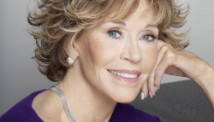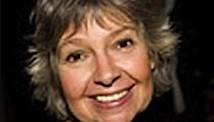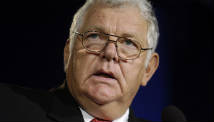Urooj Khan had just brought home his $425,000 lottery check when he unexpectedly died the following day. Now, certain members of Khan's family are speaking publicly about the mystery -- and his nephew told ABC News they knew something was not right.
"He was a healthy guy, you know?" said the nephew, Minhaj Khan. "He worked so hard. He was always going about his business and, the thing is: After he won the lottery and the next day later he passes away -- it's awkward. It raises some eyebrows."
The medical examiner initially ruled Urooj Khan, 46, an immigrant from India who owned dry-cleaning businesses in Chicago, died July 20, 2012, of natural causes. But after a family member demanded more tests, authorities in November found a lethal amount of cyanide in his blood, turning the case into a homicide investigation.
"When we found out there was cyanide in his blood after the extensive toxicology reports, we had to believe that ... somebody had to kill him," Minhaj Khan said. "It had to happen, because where can you get cyanide?"
In Photos: Biggest Lotto Jackpot Winners
Authorities could be one step closer to learning what happened to Urooj Khan. A judge Friday approved an order to exhume his body at Rosehill Cemetery in Chicago as early as Thursday to perform further tests.
Lottery Winner Murdered: Widow Questioned By Police Watch Video
Moments after the court hearing, Urooj Khan's sister, Meraj Khan, remembered her brother as the kind of person who would've shared his jackpot with anyone. Speaking at the Cook County Courthouse, she hoped the exhumation would help the investigation.
"It's very hard because I wanted my brother to rest in peace, but then we have to have justice served," she said, according to ABC News station WLS in Chicago. "So if that's what it takes for him to bring justice and peace, then that's what needs to be done."
Khan reportedly did not have a will. With the investigation moving forward, his family is waging a legal fight against his widow, Shabana Ansari, 32, over more than $1 million, including Urooj Khan's lottery winnings, as well as his business and real estate holdings.
Khan's brother filed a petition Wednesday to a judge asking Citibank to release information about Khan's assets to "ultimately ensure" that [Khan's] minor daughter from a prior marriage "receives her proper share."
Ansari may have tried to cash the jackpot check after Khan's death, according to court documents, which also showed Urooj Khan's family is questioning if the couple was ever even legally married.
Ansari, Urooj Khan's second wife, who still works at the couple's dry cleaning business, has insisted they were married legally.
She has told reporters the night before her husband died, she cooked a traditional Indian meal for him and their family, including Khan's daughter and Ansari's father. Not feeling well, Khan retired early, Ansari told the Chicago Sun-Times, falling asleep in a chair, waking up in agony, then collapsing in the middle of the night. She said she called 911.
"It has been an incredibly hard time," she told ABC News earlier this week. "We went from being the happiest the day we got the check. It was the best sleep I've had. And then the next day, everything was gone.
"I am cooperating with the investigation," Ansari told ABC News. "I want the truth to come out."
Ansari has not been named a suspect, but her attorney, Steven Kozicki, said investigators did question her for more than four hours.

















